#samurai-kanji
Explore tagged Tumblr posts
Text

STOPU42
7 notes
·
View notes
Photo



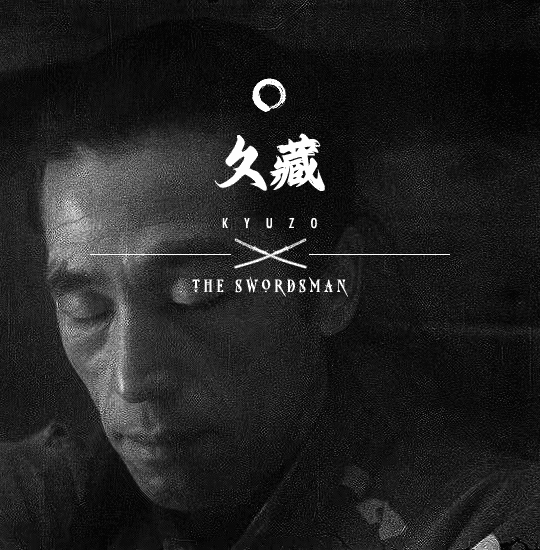
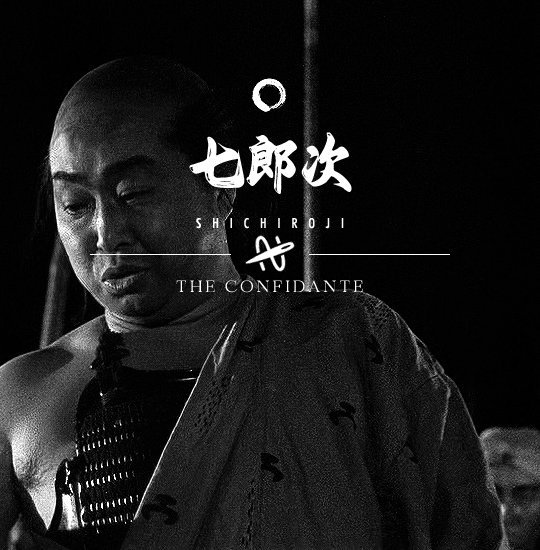
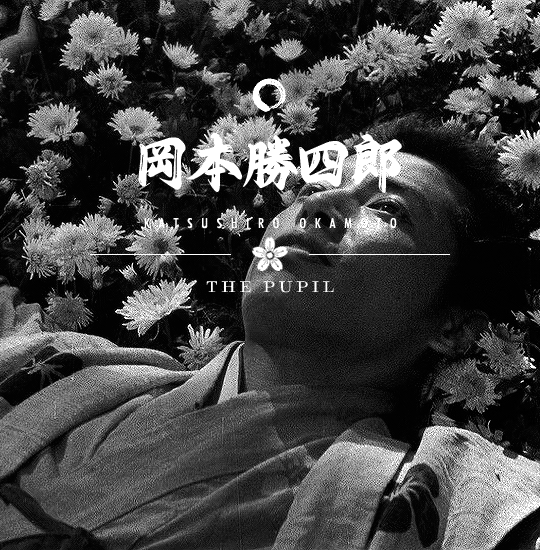

七人の侍 (1954) | 監督 · 黑沢明
#七人の侍#seven samurai#classicfilmsource#mine#akira kurosawa#黑沢 明#okay lemme explain the character ‘藏’#I'm aware that Kyuzo's name in Kanji is 久’蔵‘#but none of my fonts would show this kanji so I had to use this similar chinese character 藏#I apologise if this offends anyone#I have no intention to express any disrespect for Japanese culture#too many actors & I'm lazy so I'll only tag them in kanji#toshiro mifune#takashi shimura#isao kimura#三船敏郎#志村乔#木村功#千秋実#加东大介#稲葉義男#宮口精二#I love this movie so much it hurts#and these babies...#the fact that Chiaki didn't have a proper close-up that could really indicate his characters personality... :(#deserves better ily#Kimura lying in a flower field in 2 Kurosawa movies is sweet#and the incredible Mifune x Shimura#偷图死全家#微博上的贱手除了会偷图还会干嘛呢 你妈��了
1K notes
·
View notes
Text
the meaning behind the kanji of mizu and taigen's names is literally not ever gonna leave my mind.
like are you kidding me. mizu is 水 ("water"), we all know that. but what drives me insane is that taigen is 泰源 ("peaceful origin").
so when you put them together ("tai" 泰 + "mizu" 水), you literally get "peaceful water."
MIZU ALONE IS JUST MIZU, BUT PUT TAIGEN NEXT TO HER AND IT'S MIZU, BUT AT PEACE.
ALSO, both "tai" 泰 and "gen" 源 contain the "mizu" 水 character as a radical. for those unfamiliar with japanese or even chinese, a radical basically means a building block for another character; so in this case, the kanji for "tai" and "gen" both use the kanji for "mizu" as one of their building blocks.
this is also why, while "gen" 源 can refer to any general type of origin or source, it also specifically refers to a fountainhead: a source of water, or the origin of a river or stream.
and like yeah okay i know that it's a 99.9% chance that the creators didn't even think about any of this. but STILL. the brainworms have fully taken over and i am going CRAZY.
#mizu x taigen#taigen x mizu#taimizu#blue eye samurai#like this is greatly the reason why i prefer taimizu over taizu as their ship name#bcs taizu is like. huh. what's the kanji for “zu”? it doesnt matter it's irrelevant here bcs “mizu” itself has its own kanji and meaning#the only way to spell out taizu then is to use the hiragana or katakana but in that case it wouldnt mean anything#BUT THIS???? GUYS..... IT LITERALLY MEANS “PEACEFUL WATER”.... “PEACEFUL MIZU”. LIKE CMONNNNN#taimizu in my mind = 💚💙=🌳🌊#yeah i'm scheduling this post it's been in my drafts for way too long it's time to let it roam free#fandom.rtf
201 notes
·
View notes
Text

also have a rabbit lightning genichiro!
270 notes
·
View notes
Text



toku heroes with kanji/kana on their faces appreciation
#kamen rider#super sentai#kamen rider den o#den o#kamen rider zi o#samurai sentai shinkenger#shinkenger#please add more if you know more than these i love them sm#i haven't watched zi o or shinkenger yet#but i saw kintaros' den-o form and was so inspired#i immediately knew that kanji meant “gold” and felt so smart LMAOIOHAGOAJOG
17 notes
·
View notes
Text
義 (gi) "integrity" - the first virtue of 武士道 (bushidō)
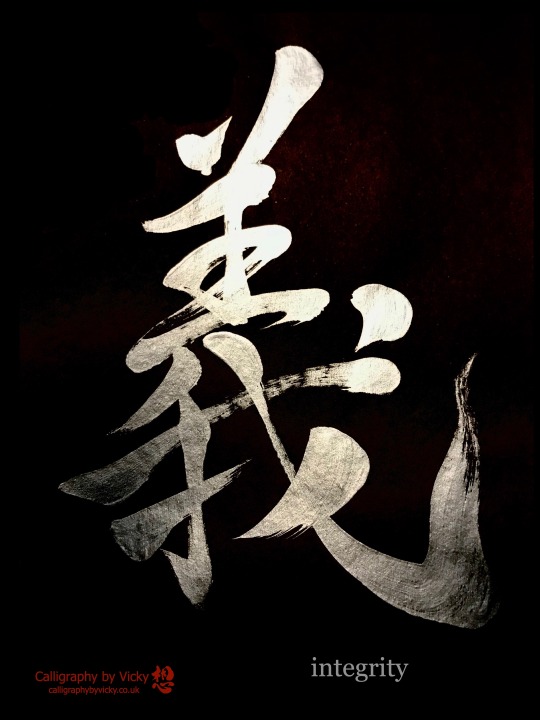
Recently I've been researching 武士道 (bushidō) - the ancient Japanese way of the warrior, mostly to try to figure out if it ever was actually a legit thing, or if it's a modern invention.
Spoiler alert: it's a bit of both. You can read my conclusions in my Wordpress article here.
Bushidō comes with a handy list of 8 virtues that one can follow to lead one's best and most noble life. You may not have been born a samurai, but you can still live like one by following this code.
The first virtue is "“Rectitude or Justice”, which I have "translated" as "integrity", for reasons below:
Historically in Japan, opinion on what was “right” or “moral” was fairly uniform.
In modern Western countries, people of many different cultures and backgrounds live side by side, so it is neither possible nor desirable for individuals to always look to their societal norms for moral guidance.
These days what is considered “right” is often something that one must decide for oneself.
However, the ideal of sticking to one’s values even when it is difficult is still considered a virtue: that of having personal integrity.
#書道#japanese language#japanese calligraphy#japanese art#japanese culture#japanese langblr#calligraphy#japan#japanese#kanji#Asian art#bushido#samurai#Japanese history#japanese history
98 notes
·
View notes
Text

Kubikase 頚鉗
Neck handcuffs
Ryukyu Kingdom
6 notes
·
View notes
Photo





(via "Cyber Ronin, Untouchable, Japanese Writing" Long T-Shirt for Sale by Burn-Ego)
#findyourthing#redbubble#samurai#ronin#ninja#cyber samurai#cyber ninja#cyber ronin#kanji#japan#japanese#anime#manga#cyberpunk#cybernetic#cybergoth#cyber goth#warrior#samurai warriors#japanese warrior
5 notes
·
View notes
Text
new desgin available ⚔⛩️

Available in the official store 👇🏼
#drawing#kanji#art#martialarts#design#tshirt#katana#fashion#samurai#1k#chinese#style#ronin#Illustration#warrior#shirts#ninja#japanese
2 notes
·
View notes
Text

This fits Soushi so well! ˚‧º·(˃̣̣̥∩˂̣̣̥)‧º·˚
I love a character raised to be a weapon as much as the next guy. But what really gets me is a character raised to be a shield. Who can’t fathom being needed—or even being wanted— beyond keeping others safe. Who believe they are alive only to insure someone doesn’t die. no matter the cost. Characters who self-sacrifice not because they think they deserve it, but because no one else does deserve it, and it’s their job to protect.
Characters who’ve been told that’s why your important. Your worth something because this other person/ thing is important, and you are here solely to keep them safe.
Bonus points if it’s not a legitimate job they’ve been given. Maybe at one point it was, but now that they are free from it, they haven’t given up that mentality. No one is forcing or asking them to do this, but they need to. They need to in order to be deserving.
#minashiro soushi#皆城総士#soukyuu no fafner#fafner#the kanji in his name literally means 'everyone's castle everyone's samurai'
37K notes
·
View notes
Text
edgeworth is literally the least first nameable character ever to me. ill call manfred von karma by his first name, but with edgeworth it still sounds so weird
#manfreds the one whose relative is younger too. though shes more a main character while edgeworths main not his father#i do think edgeworths first name doesnt suit him as well too whats it meant to be miles as in distant#actually that sort of makes sense but i still dont think the vibes really fit the character#also in japanese his first name sounds the same as midnight as in 0 hour#not that that makes sense either im not sure thats why it was that. the kanji for samurai is in it though and the other one looks like cold#but isnt i just forgot what it actually is#pronounced rhe same as cold in fridge though#also why am i the only one who doesnt find last names weird and distant for friends in fictionsl stuff it literally just sounds normal to me
0 notes
Text
Blue Eye Samurai Characters' Names in Kanji
These are the official kanji used in the Netflix Japanese subtitles.
Disclaimer: I am not Japanese and am still a beginner learner. If there are any errors in pronunciation or meaning of the kanji listed below, please let me know!
1. Mizu: 水 [mizu]
water, fluid, liquid
2. Ringo: 林檎 [ringo] apple
林 [hayashi] forest, woods, grove 檎 [jin] apple, fruit
3. Taigen: 泰源 [tai-gen]
泰 [yasu] peaceful, calm 源 [gen] fountainhead, wellspring; source, origin
4. Akemi: 明美 [ake-mi]
明 [mei] bright, light, clarifying 美 [bi] beauty, beautiful
5. Master Eiji: 鋭司 [ei-ji]
鋭 [ei] sharp, pointed, acute, keen 司 [tsukasa] an official, a manager, a boss
6. Seki: 関 [seki]
barrier, gateway, close, seal, relation
7. Madame Kaji: 梶 [kaji]
oar, paper mulberry tree
8. Mikio: 幹男 [miki-o]
幹 [miki] tree trunk, plant stem 男 [otoko] man, adult male
9. Heiji Shindo: 新堂 [shin-do] 平次 [hei-ji]
新 [shin] new, novelty 堂 [do] hall, temple, shrine 平 [hira] something flat; something ordinary, mediocre 次 [tsugi] next, order, sequence, below
#blue eye samurai#mizu blue eye samurai#ringo blue eye samurai#taigen blue eye samurai#akemi blue eye samurai#figured i'd just post these here if people want it#also im kinda going crazy about taigen's kanji name meaning#lots of ppl assumed the kanji for “tai” would be 大 for 'greatness' but instead it's 泰 for peace...cuz he wants happiness not greatness :')#fandom.rtf#shut up haydar
101 notes
·
View notes
Photo








(via "Samurai Warrior in Battle" iPhone Case for Sale by VenomousLJ)
#findyourthing#redbubble#samurai#samurai warriors#samurai swords#dynamic art#japanese#japan#japanese art#japanese aesthetic#japanese culture#kanji#japanese kanji#bamboo#stickers#sticker#tshirt#clothes#phone case#iphone#samsung galaxy#throw pillow#print on demand
1 note
·
View note
Photo










("Karate T Shirt - Okinawa Karate T Shirt - Cobra T Shirt - Okinawa 1972 T Shirt " Essential T-Shirt for Sale by PowerKanjiFitから)
#findyourthing#redbubble#karate okinawa japan martial arts japanese dojo kumite sensei kanji bushido shotokan kata samurai budo kobudo
0 notes
Text
自制 (jisei) "self-discipline" - the eighth virtue of 武士道 (bushidō)
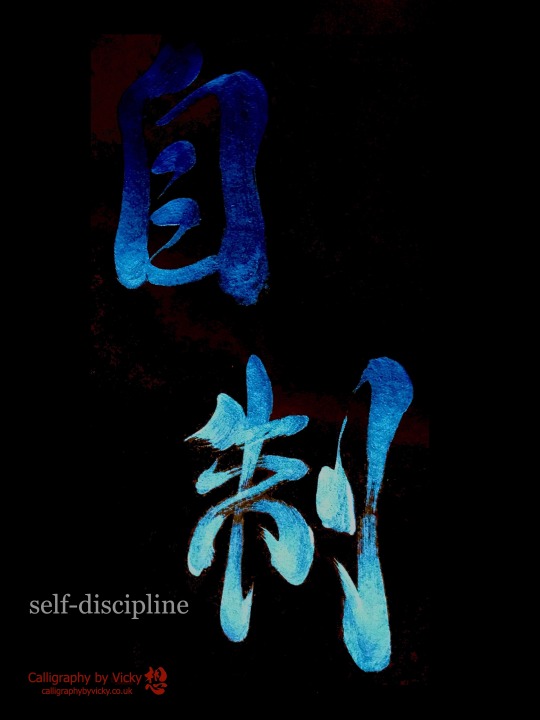
Recently I've been researching 武士道 (bushidō) - the ancient Japanese way of the warrior, mostly to try to figure out if it ever was actually a legit thing, or if it's a modern invention.
Spoiler alert: it's a bit of both. You can read my conclusions in my Medium article here.
Bushidō comes with a handy list of 8 virtues that one can follow to lead one's best and most noble life. You may not have been born a samurai, but you can still live like one by following this code.
The eighth virtue is “Self-Control”, which I have translated as "self-discipline", for reasons explained below.
These 8 virtues were first mentioned in Nitobe Inazao's 1899 book "Bushido: the Soul of Japan".
When introducing “self-control”, Nitobe brings together previous virtues: “The discipline of fortitude (勇 (yū) courage) on the one hand, inculcating endurance without a groan (名誉 (meiyō) reputation), and the teaching of politeness (礼 (rei) respect) on the other, requiring us not to mar the pleasure or serenity of another by manifestations of our own sorrow or pain, combined to engender a stoical turn of mind.”
Nitobe makes it clear that this “stoical” behaviour was considered a virtue: “It was considered unmanly for a samurai to betray his emotions on his face… The most natural affections were kept under control.”
Such strict “control” of one’s emotions may seem excessive and unnecessary to a modern Western audience, which is why I have “translated” this virtue as “self-discipline”. With the previous seven virtues as a guide, one can use discipline to make a conscious effort to guide one’s life in a positive direction.
#書道#japanese language#japanese calligraphy#japanese art#japanese culture#japanese langblr#calligraphy#japan#japanese#kanji#Asian art#bushido#samurai#Japanese history#japanese history#武士道
72 notes
·
View notes
Text
Samurai Japanese Kanji T-Shirt

0 notes